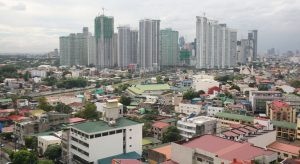The country’s total gross savings in 2024 climbed by 16.7% from a year earlier, the Philippine Statistics Authority reported on Thursday.
At current prices, gross national savings, the difference between gross national disposable income and the combined household and government spending, totaled P7.70 trillion, up from the P6.60 trillion in 2023.
This accounts for 26% of gross national income in 2024, higher than the 24% recorded a year earlier.
Overall economic output grew last year, with the gross domestic product (GDP) showing a revised growth rate at 5.7% and gross national income (GNI) at 7.7% in real terms, respectively.
At current prices, GDP and GNI also expanded by 8.8% and 10.8% in 2024, respectively.
During the period, household spending rose year on year by 8.2% to P20.14 trillion. Government spending likewise saw an increase of 11% to P3.84 trillion.
In 2024, the Philippines’ gross national disposable income rose by 10.5% to P31.68 trillion from P28.66 trillion in the previous year. The figure was obtained by subtracting the GNI from the net difference between current transfers to and from the rest of the world.
GNI per capita at current prices stood at P264,804. This was higher than P241,065 in 2023 and P210,228 in 2022.
Broken down by institutions, nonfinancial corporations accounted for more than half of the gross savings last year with P4.96 trillion, followed by financial corporations (25.7% share with P1.98 trillion), households including nonprofit institutions serving households (NPISHs) (5.1% share with P393.31 billion), and general government saving (4.7% share with P364.98 billion).
Oikonomia Advisories and Research, Inc. Economist, Reinielle Matt M. Erece said in an email that the uptick in saving last year was primarily driven by higher interest rates which led households and businesses to “reduce spending and hold their money in banks to take advantage of the interest rate.”
Before the Bangko Sentral ng Pilipinas (BSP) began its easing cycle in August of last year, benchmark interest rates remained steady at 6.5%.
Since then, the BSP has trimmed key rates for three straight meetings last year but paused at its February meeting. The central bank slashed policy rates by 25 basis points each in April and June meetings bringing down the key rate to 5.25%.
“Inflation rate is low and continues a downward trend. This creates an expectation among households to postpone current consumption and save more since prices in the future are expected to further decline,” Tereso S. Tullao, Jr., director at De La Salle University-Angelo King Institute for Economic and Business Studies, said in a separate email.
Mr. Tullao added that better economic performance and low unemployment rates may also be attributable to higher saving as it moves in line with income.
The country’s unemployment rate dropped to 3.8% in 2024, the lowest figure since the 7.8% in 2005.
“It is possible that households increased their consumption marginally, but they may be putting their remittances in financial instruments, thus increasing their savings,” Mr. Tullao said.
He said that a stable economy driven by low inflation and unemployment rates are the key to sustained national savings.
Mr. Erece said that the trend in increased spending may be continued if price levels are managed and more investments to bolster income growth are made.
For this year, Mr. Erece said that growth in savings may not match the level seen in 2024.
“Rate cuts may encourage more loans to be taken and reduce money that is kept in financial institutions as savings,” he said.
The Consolidated Accounts present a summary of transactions and relationships among the various flows of the economy, while the Income and Outlay Accounts are compiled for the four institutional sectors, namely, financial and nonfinancial corporations, general government, and households including nonprofit institutions serving households. — Matthew Miguel L. Castillo

